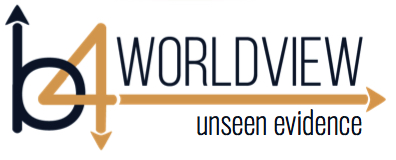
Key Thought for this session:
“Faith is the evidence I cannot observe for the truth that I must act on.”
Every serious person has a sincere need for their life to have a positive impact on the world around them. However, the myth that deceives many is that being “sincere” is what faith is all about. It is true that commitment does increase the intensity of our effort and the direction of our behavior. BUT, in reality, the aspect of faith that matters most to the consequences of our actions is not sincerity, but it is the validity of our faith. You’ve probably heard the saying, “Many people are sincere, but can be sincerely wrong!” So, the question is: “Is the unseen evidence, that defines our faith, right?”
For instance, if you are going down a road and come to a river, what do you do? You need to get to the other side, but you are not sure if the river is too deep to cross because you can’t see the bottom and you have no device to measure the depth.
While there is some evidence you can see, you ultimately must act in faith on the evidence you cannot see. You can see what the surrounding terrain is like. Are there other people who are crossing? But ultimately you either trust it can be crossed safely or you trust it is too deep and you turn back to find another route. The point is, the river is either too deep or it’s not. Its depth does not depend on how much you trust your unseen evidence of the depth. It is too deep or it is not, regardless of how much you trust the unseen evidence. You could really believe it is shallow, try to cross, and drown. Or you could really believe it is too deep and then lose the opportunity to cross if it is actually shallow.
What is necessary to be successful in crossing the river is dependent on the depth of the river, not the amount and sincerity of the faith you have about the depth. Remember back in Session 4 we discussed trust, which is really acting on our faith. We said that trusting another person means you are willing to give them some control because you believe they will not take advantage of you and act in their own self-interest. Trust is having evidence in their character that you cannot really prove. This trust comes from BOTH the eido and gnosis knowledge you have of them. But, the ultimate outcome of your trust in them is not what you know and how much you trust them, but whether their character is, in fact, trustworthy.
A common mistake some people make is to believe that having faith is just feeling positive about something. Many people confuse “the power of positive thinking” with faith. Here is the difference and this is very important for you to hear. The ‘power of positive thinking’ puts the power in the amount of faith you have, when the true power is in the reality of what you have faith in. There is an old saying that if you had just a tiny bit of evidence that something is true, you could move mountains. The point of this principle is that the AMOUNT of conclusive evidence is not what is important about faith.
This brings us to the last point I want to make about knowledge, truth, and faith.
Have you ever heard the saying, “Perception IS reality?” Some people believe this saying, and some really disagree with it.
Even, if we don’t believe this saying, we hear it so much that we may have a tendency to believe it, anyway. How should we view it? What is perception exactly? Each of us has this fundamental choice to make about what we believe to be true. And tying this back to our previous discussion about our tendency to see, or “perceive,” those things that are salient, or MOST important to us, we then need to ask: What types of things are salient (meaning: most important) to us? Either we most value our experiences when they verify our knowledge through physically measured evidence OR we most value our experiences that provide us with evidence through knowledge that is revealed to us. Philosophers and scientists tend to be part of the group of people who prefer to verify their beliefs through physical evidences, but many other people prefer to put more credibility in revealed truth. We will look at this in more detail in the next session. But for now, let me ask you this question: